
AIthough this varies over the country, May and June are still the main swarming months, so you need to be ready to take steps to control colonies showing swarm preparations.
Think of the colony as being composed of three parts: the queen, the brood and nurse bees, and the flying bees. All swarm control methods consist of separating one of these from the other two. Like anything else, swarm control is not difficult when you understand the process. However, what you also have to realise is that just doing the separation is not enough. You will also need to intervene at one or two points. This is where you need to remember the development times for the queen and the workers. Whatever steps you take, the individual life cycles will continue.
If you remove the queen, the swarm will not leave the hive. 'Great,' you say. However, there are developing queen cells still in the colony. If you do not reduce these to one after they are sealed, the first virgin queen will emerge and swarm out of the hive, not only with the bees that would have accompanied her if she led an afterswarm, but also all the bees that would have gone with the original queen in the prime swarm. Rather than controlling swarming, you will be in a worse position, having lost even more bees. As the other virgin queens emerge, they are likely to lead out afterswarms so your colony will be depleted even further until the workers 'decide' that enough is enough and kill all but one of the remaining virgins in their cells.
If there is only one sealed cell, the virgin that emerges will not leave with a swarm. When she matures, she will fly out to a drone congregation area to mate and return to head the colony.
THE NUCLEUS METHOD
This story is from the {{IssueName}} edition of {{MagazineName}}.
Start your 7-day Magzter GOLD free trial to access thousands of curated premium stories, and 9,000+ magazines and newspapers.
Already a subscriber ? Sign In
This story is from the {{IssueName}} edition of {{MagazineName}}.
Start your 7-day Magzter GOLD free trial to access thousands of curated premium stories, and 9,000+ magazines and newspapers.
Already a subscriber? Sign In
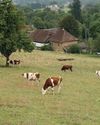
How to Buy a Smallholding in France- Long-time smallholder Lorraine Turnbull looks at the practicalities of moving to rural France
Aspiring smallholders are continually thwarted by the prices of smallholdings and property with land located within the UK. Even the humblest croft in Scotland comes with a substantial price tag and conditions which would make even an adventurous wannabee consider carefully. But all is not lost. For those willing to take the adventure of a lifetime, there is always Europe, and one of the most popular places is France.

Meet the Bournemouth goats and their supporters
These capricious animals are hard workers preserving the natural habitat
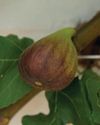
Still warm enough to sit outside with a Pizza
Henrietta Balcon uses fresh figs to create an unusual dish at Harvest time
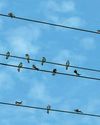
Goodbye to the birds of spring and summer
If you look and listen you might be able to see them preparing to leave says The RSPB
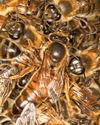
Get ready for the colder weather in the warmth of late summer
Claire Waring advises on doing the best to make sure your colonies survive until next spring
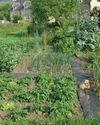
Preparing the Veg Patch for Winter
Lee Senior says, a well-run plot can excitingly continue to produce good quality, tasty, fresh food for much of winter
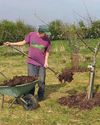
Time to prepare to plant your orchard
Wade Muggleton, smallholder and author of The Orchard Book, shares his practical experience so you can create your own fruit collection
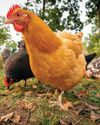
Choosing feed for the autumn
As autumn approaches, Joanna Palmer, nutritionist at the Smallholder Range, offers advice on choosing the right feed to support your adult birds through their annual moult and ensure your young birds grow and finish well at this time of the year.
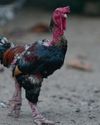
Vet advice from an experienced poultry vet
Reflecting on how much the humble hen has helped people world wide plus advice on stopping the scourge of red mite

Give your hens some support
Paul Donovan looks at the right and wrong ways of handling birds